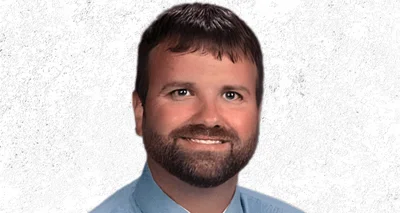The village of Wauconda has achieved the kind of fiscal success many wish Illinois as a whole could master.
Less than two months ago, Wauconda trustees approved a roughly $21.7 million budget for 2017 – approximately $1 million less than the budget for fiscal year 2016, which ended April 30.
The decrease is reportedly due to planning reductions in capital improvements and the pending closure of the 911 call center in the village, both set to lower village expenses by approximately $583,000 in 2017.
The decision to outsource Wauconda’s 911 service to cut costs came last year. Beginning last May, emergency calls for Wauconda police and the fire district were rerouted to Lake Zurich's 911 center.
While Wauconda's projected revenue is expected to decline between 2016 and 2017, the decline is not expected to be as sharp as the reduction in spending.
“On our budget, I think the key thing to take notice of, we’ve had three years of extremely large surpluses,” Wauconda Mayor Frank Bart told the Lake County Gazette. “So even in 2015, we had an $815,000 surplus; that is 10 percent of our operating budget.”
Bart said though it has been difficult, the village has been very disciplined in its spending.
“One thing we can control is what we spend,” he said. “We can estimate what our revenues are going to be, and that obviously factors in water rates for our municipal water and sewer fund, but the one the thing we do know we can control is our spending. So it is difficult. Leaders have to be prepared to fight the fight in order to have the rational budgets and be fiscally disciplined.”
Bart, who took office in 2013, is a business consultant and a military veteran. He is a lieutenant colonel with the U.S. Army Reserve and completed three tours in the Middle East with the Illinois National Guard.
When he took office, Bart took a hard look at the finances to determine what needed to be eliminated from the budget. He also made sure he had staff that represented the interests of taxpayers.
“Working with leaders I have been able to get this done despite the fact the trustees have been trying to fight me at every single step,” Bart said. “The trustees even actually tried to fight our Heroes of Freedom Memorial.”
But having a strong team working along with him has helped to further accountability and fiscal responsibility.
“The staff and I work together, and I make sure the staff member working on (a given initiative) takes ownership of it and marshals it though so at the end of the day (trustees) would be working against your full-time professional staff for any of the initiatives we put forth," he said. "That is how I have been successful using third parties as a buffer. In the military, that is all we can do is lead through leaders."
Bart has drawn from his rich military background to help guide his decisions as mayor, particularly when it comes to leadership.
“I think this is a system that works, any way -- leading through your leaders -- because they are subject matter experts and at the end of the day you can’t go out and drive 100 vehicles all at once simultaneously," he said. "So I need leaders to do that. I just give them the (directive) and that has worked so far."
The village’s ability to cut costs and function on a balanced budget is commendable given Illinois’ decades-long tendency to spend more than it has -- Illinois hasn’t had a balanced budget since 2001.
The budget stalemate -- now in its 12th month -- has brought the state to its knees, with many public services and institutions in financial jeopardy due to the lack of government funding.
In order to see any positive change in the state’s condition, Bart said Springfield needs to change the way it operates.
“The (General Assembly) is using approaches everyone knows won’t work," he said. "Taking a hard line is not going to work for the benefit of everyone, anyone really. I look at it this way: special interest groups have been too effective at arguing for pensions increases, salary increases."
Gov. Bruce Rauner has the tough task of trying to fight against leadership that has been at the wheel for a long time, Bart said.
“The governor has a different scenario in that his legislature there is so deeply entrenched after 40 plus years, and he has been here for a year,” he said. “It is going to take some time for these guys to break down these barriers. It is going to take some elections for the people to support the opposite party and bring some balance back to the state legislature.”
Bart believes the long-term fix for Illinois is term limits because some legislators have been in office so long the legislature is “tilted (to) one side -- the pendulum has swung so far and stuck.”
“You don’t build up the kind of dynasty that Michael Madison has in eight years," he said. "So my general perspective on term limits is think back to the forefathers, and George Washington is a great example. They tried to encourage him to stick around longer and he said, ‘No.’ Even some of them said they’d consider making him king and he said, ‘Absolutely not, and in fact, I am out of here. I’m done.’”
Bart said legislators should be limited to two terms, which is plenty of time to make a positive difference “if their motives are to be the caretakers and the guardians of the public interest.”
Right now, it is up to voters to initiate change in Springfield, Bart said.
“Short-term, there is going to need to be some elections where they first break the supermajority that Michael Madigan has in the House and the Senate so that at least gives the governor some power because his votes can’t be overridden,” he said. “And then the other piece of this is going to be there has to be some acknowledgment that Illinois got downgraded again so they are one basis point away from junk bond status. So that means they can’t borrow any more money.”
If the state can’t borrow any more money, it will be forced to be fiscally disciplined because the option to borrow won’t exist, he added.
Although the situation in Illinois looks grim, Bart is confident the state can turn around and experience the financial success Wauconda has.
“In the last three years, I don’t know anyone around us that has had three straight years of six-figure surpluses," he said. "So it shows that it can be done if you make the effort and are willing to represent the public’s interest. It can be done and we have done it for three years straight. And I think it should be done throughout Illinois.”






 Alerts Sign-up
Alerts Sign-up